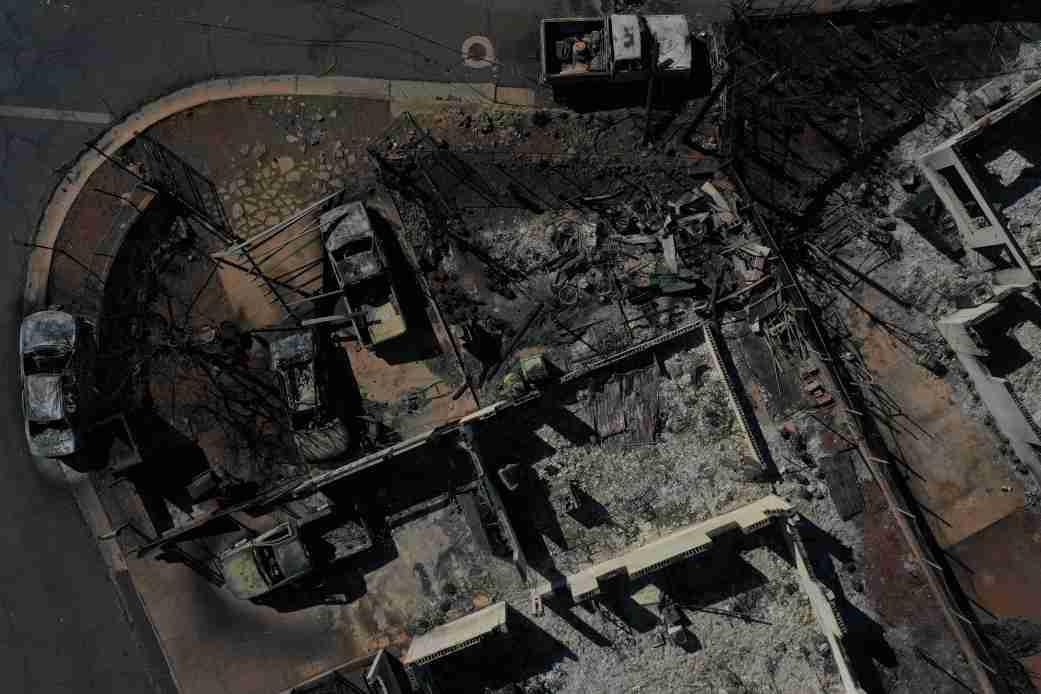
The head of Maui's emergency management agency -- who said this week he did not regret the decision to not sound powerful warning sirens as a deadly wildfire ripped through the Hawaiian town of Lahaina -- resigned Thursday.
Herman Andaya had come under criticism for not activating the island-wide network as fast-moving flames bore down on the city, with survivors saying they had no warning of the blaze.
Many of those who were killed are believed to have been trapped in their homes or caught in their cars as they made a desperate last-minute bid to escape.
At least 111 people are known to have died in what was the deadliest wildfire in the United States in over a century. The final toll is expected to be considerably higher.
"Today Mayor Richard Bissen accepted the resignation of Maui Emergency Management Agency (MEMA) Administrator Herman Andaya," a Maui County release said.
"Citing health reasons, Andaya submitted his resignation effective immediately."
Andaya's decision not to activate the sirens is one of a number of perceived missteps by local officials before, during and after the blaze which have angered survivors, who say more lives could have been saved.
"The sirens are used primarily for tsunamis. The public is trained to seek higher ground in the event that the siren is sounded," Andaya had told a news conference on Wednesday.
"Had we sounded the siren that night, we're afraid that people would have gone (into the hills)... into the fire."
He also wondered whether anyone would have noticed if the sirens had blared their 121-decibel warning -- a level the American Academy of Audiology says is equivalent to a jet plane taking off.
"A lot of people who are indoors, air conditioning on whatever the case may be, they're not going to hear the siren," he said.
"Plus the winds were very gusty (that day)... it was very loud, so they wouldn't have heard the sirens."
Asked if he regretted the decision not to activate the system, he replied: "I do not."
Criticism has swelled since the disaster, with survivors complaining there were no official warnings issued.
Mobile phone networks and the electricity supply were knocked out, limiting the channels by which alerts are usually delivered.
Survivors have told AFP of only learning of the fire when they saw it tearing down their own street.
Residents have also complained that the government has been slow to help in the aftermath of the tragedy, with many saying they're getting more assistance from civil groups.
The pace of body recovery is also causing friction, and reports suggest some locals are losing trust in their elected and appointed officials.
Hawaii's Governor Josh Green last week ordered a probe into the preparations for and response to tragedy, to see if lessons can be learned.
Hawaii's attorney general, Anne Lopez, said Thursday she would appoint an independent body to carry out the inquiry.
"Having a third-party conduct the review will ensure accountability and transparency and reassure the people of Hawaii that all of the facts will be uncovered," she said.
Cadaver dogs and their handlers on Thursday continued the difficult process of combing the disaster zone for more bodies.
Only a handful of bodies recovered from Lahaina have been identified so far.
Experts in forensic pathology, some of whom worked in the aftermath of the 9/11 attacks, are in Maui to assist with identifying badly burned remains.
US President Joe Biden is expected to visit Maui on Monday with his wife, Jill.
Biden had quickly declared a major disaster in Hawaii after last week's inferno, allowing the deployment of emergency assistance from the federal government.
But he has been criticized by the Republican opposition for what they characterized as a timid response to the fires.